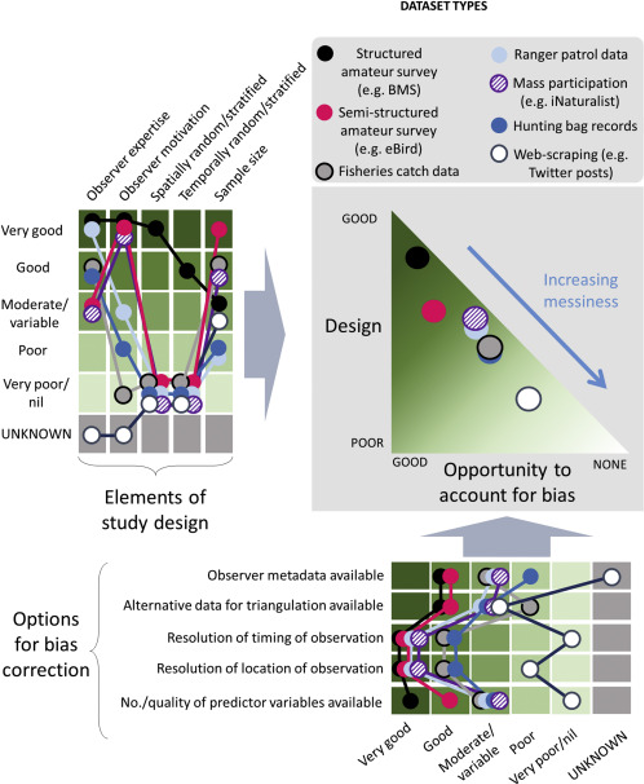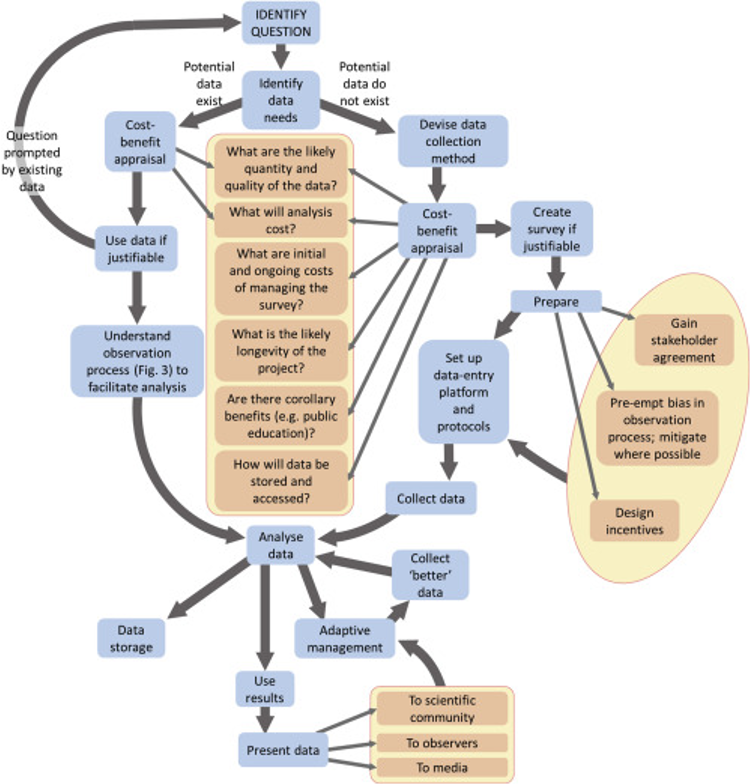Just out! Our new paper on messy data for #conservation, led by Andy Dobson, @EJMilnerGulland, & @aidank. Ranger patrols, citizen science, wildlife seizures…produce #messy but valuable #data. How can we best harness their potential? (thread). https://www.cell.com/one-earth/fulltext/S2590-3322(20)30199-8">https://www.cell.com/one-earth...
Robust #data underpin effective conservation. Unstructured observations (other examples: online #wildlife sales & #hunting bags) are often higher-volume, cheaper, and more accessible than structured surveys. We break down the observation process to highlight key sources of bias…
Biases include imperfect #detection, and sampling #bias towards certain areas, times, or taxa. Accounting for these biases is crucial, but depends on the study design (observer expertise/motivation, spatial and temporal stratification, etc.)…
*When are messy data worth using?* We synthesise current knowledge across natural and social sciences to offer advice. Your objectives, the required #data #quality, & the full costs of data collection AND #analysis must be carefully considered…
Finally, understanding the #incentives of data collectors and using protocols to reduce bias and error in data collection may in some contexts be more efficient than the complex analytical techniques and skilled staff needed to correct messy data.
Thanks to @NERCscience for funding! @ICCS_updates @eb_nilsen @IWTnet @HarrietIbbett @TZBirder @Society4ConBio @SCB_Africa @rstatstweet

 Read on Twitter
Read on Twitter



